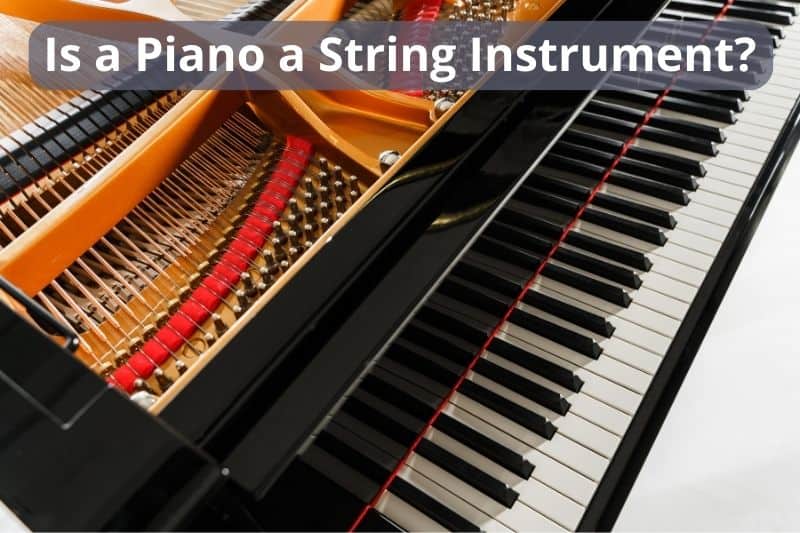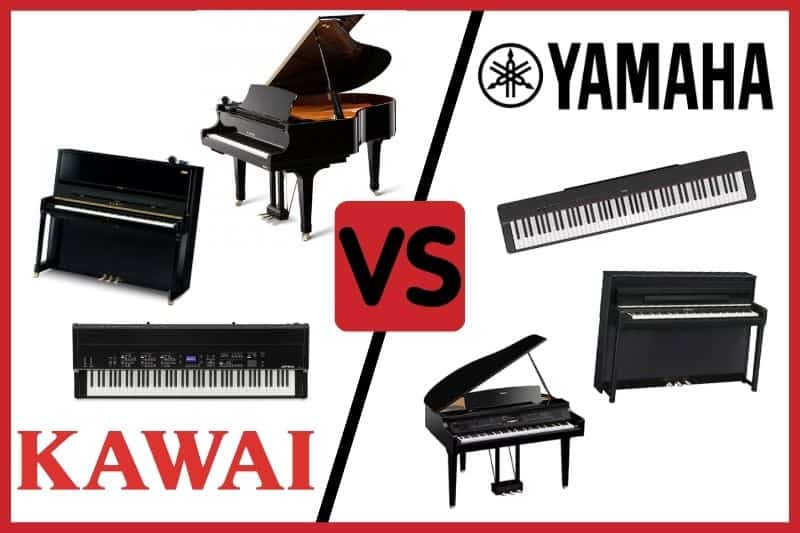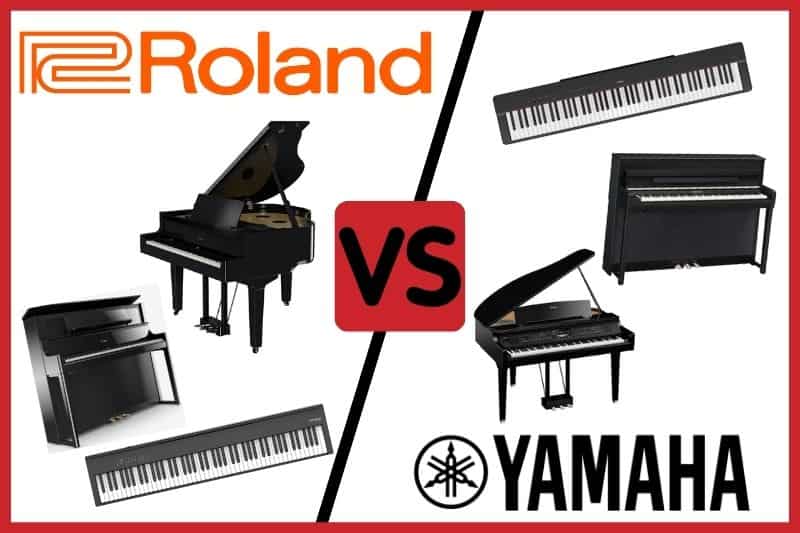
If you want to learn to play the piano, you need the best instrument you can afford. A good piano will help you learn the right technique for your fingers, and it will allow you to get a good sound. However, not everyone has the money or space for an acoustic piano, and a digital piano can be a great option.
Digital pianos can be just as good as acoustic ones. They use digital samples to produce sound as opposed to hammers and strings and can come with keys to replicate the feel and weight of real ones. A digital piano is an excellent alternative for those who can’t use a traditional acoustic one.
Whether you’re new to the piano or want to upgrade your instrument, you may consider a digital piano. They are typically more affordable and take up less space than real pianos. However, you may have to make sacrifices when using a digital instrument.
Digital Pianos vs. Acoustic Pianos
When shopping for a piano, you may be overwhelmed to find how many types there are. Not only are there various types of acoustic pianos, but there seem to be just as many, if not more digital pianos. Digital pianos tend to be cheaper than acoustic ones, and that’s not the only significant difference.
Acoustic and digital pianos have different sounds, feel different to play, and have different levels of versatility. Some are better for beginners or recording music, while others are better for professionals or live performances.
If you’re looking to learn to play the piano, you should compare digital and acoustic models. No two piano players will have the same experience when playing an instrument. What works for you might not work for someone else, and that’s okay.
The Feel
One of the most significant differences between digital and acoustic pianos is how they feel. When you play the piano, you should feel comfortable, and your fingers shouldn’t feel squished. Almost all acoustic pianos have weighted keys, which require a bit of force to produce a sound.
Many digital pianos also come with weighted keys, but with some models, they are unweighted. If you have unweighted keys, you don’t have to use as much pressure when playing the piano. Having unweighted keys can be a good option for beginners or piano players who have arthritis or other hand and wrist problems.
Another difference is the presence or lack of foot pedals. Foot pedals are essential for a lot of piano music. The most crucial one is the sustain pedal, which keeps the notes ringing after you stop pressing the keys. There is also the soft pedal, sometimes called the una corda, which can change the notes tonal quality.
While both these pedals are standard options on acoustic pianos, they won’t necessarily come with digital ones, especially portable ones. However, you can usually get a separate sustain pedal for a digital piano.
The Sound
Another thing to consider when choosing a digital piano or an acoustic one is how it sounds. You may be surprised to learn that not all pianos sound the same. Of course, the most significant difference between digital and acoustic pianos is how they produce their sound.
- Acoustic pianos use a set of strings and hammers. When you press a key on a piano, the coordinating hammer strikes a string, which causes it to vibrate.
- The vibrations of the string give the acoustic piano its sound.
- Digital pianos use a soundbank of piano sounds. Some may use recorded sounds (samples), while others produce the sounds from a digital source.
- Most digital pianos have a set of speakers that allow you to hear the sounds as you play the piano.
- You can also use a set of headphones to listen to the digital piano if you don’t want to disturb others.
- If you have a MIDI cable, you can also play a digital piano through your computer and a music program.
In general, acoustic pianos have a warmer and more authentic sound than digital pianos, however, sometimes it can be hard to tell any difference! Digital pianos can also produce sounds of other instruments, such as guitars and even drums. You can listen to different types of keyboards to see if you can hear a difference or if you prefer one over the other.
The Flexibility
One of the benefits that digital pianos have over acoustic ones is the flexibility it offers when making sounds. Of course, you can play it sounding like a piano, but you can also mimic other instruments like guitar, violin, or electronic sounds. These can either be built-in or added via a MIDI.
Another important flexibility option a digital piano offers is the volume control. You can easily adjust this so that you play as soft or loud as you want.
Digital pianos also come in a variety of shapes, sizes, and portability options. If you don’t have much space for a keyboard, a digital model can be an excellent choice. You can move the piano, too, which can come in handy if you want to take your piano to a gig or store it out the way for a while.
The best digital pianos have 88 keys, which is the same as an acoustic piano. However, some pianos have fewer keys (61 or 76), and these can be a good option for beginners.
The Cost
While you can find some cheap acoustic pianos and expensive digital ones, digital pianos are usually more affordable. You pay for the instrument when you get it, and the selling price is lower than an acoustic piano.
However, acoustic pianos have other costs to consider. If you want the sound of an acoustic instrument, these costs may be worth it. But if you don’t have much of a budget, the benefits of an acoustic piano may not be worth the price.
- Acoustic pianos require regular tunings, and that usually means hiring a professional piano tuner. Tuning is crucial if you want to sing while playing or if you want to play with others. The strings can move, and that can cause the piano to go out of tune.
- Since digital pianos are electronic, you don’t have to worry about tuning them. They will keep the same pitch over time.
- Acoustic pianos are heavy, especially grand ones and you will need help to move them.
- Digital pianos tend to be smaller, lighter, and easier to maneuver.
If it’s purely the sound and feel that you are looking for, then acoustic pianos may be better than digital ones. However, there will be the added cost of maintenance and tuning you will need to consider. So in that way, a digital piano might be better than an acoustic one.
Conclusion
In general, an acoustic piano has a better, more natural sound than a digital one. They offer the chance to use proper playing techniques, and you can hear small nuances when you play them.
Digital pianos also have benefits, such as flexibility and a lower cost. Some of them even offer a full set of keys with the same weight as an acoustic piano. In that case, you should consider which features are important to you and what you need.
Whether you’re a beginner or someone looking for a new instrument, digital pianos offer a whole range of alternatives from the basic and portable to the grand and technically advanced that even the professionals would have a hard job deciding whether the sounds they produced were digital or acoustic.




